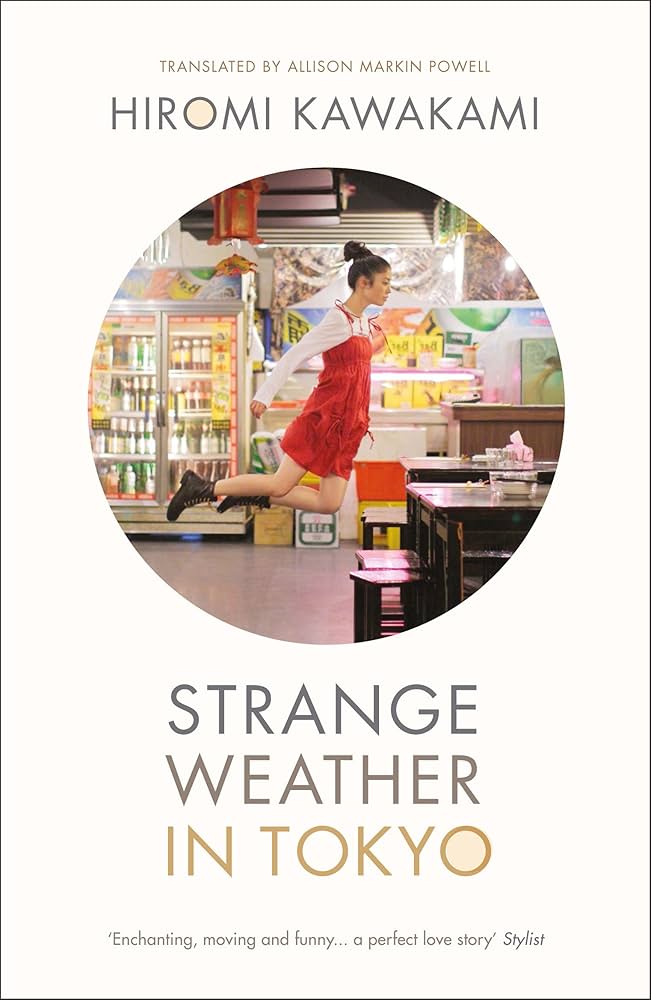Strange Weather in Tokyo

I rarely write about books because I only read about 10 a year, and I don’t feel confident in my taste or vocabulary. But I want to talk about Strange Weather in Tokyo. I’ve picked it up and put it down several times before finally finishing it, and it’s beautifully written: poetic, intimate, and full of understated internal struggles.
If you’re into short, wholesome romance novels, go read it before continuing. It’s a quick read – my Kobo says it took me 4.5 hours.
Spoilers ahead.

Strange Weather in Tokyo unfolds as a series of vignettes, following the evolving relationship between two characters: Tsukiko Omachi, a woman in her thirties, and Harutsuna Matsumoto, her former high school teacher, known as "Sensei." His age isn't specified, but he is likely in his seventies. They reconnect by chance at an izakaya, a Japanese bar, transitioning from drinking companions to friends and ultimately to partners.
The story's structure feels carefully chosen, showing chronological moments that gently reveal the growth of their bond. It focuses less on grand events and more on the quiet, intimate ways people connect, with much of the understated drama unfolding within Tsukiko’s inner world.
A review by Ashley Hajimirsadeghi critiqued the novel, stating, “I cannot get past the fact the plot is about the high school teacher and the girl. Maybe because I’m used to looking at gender issues from a critical lens, I find the teacher’s behavior to be problematic.” While I respect her perspective and I think it’s important to share that perspective, I see the story differently, perhaps because I haven’t personally experienced predatory behavior, which could shape how I interpret the characters.
What some might find uncomfortable, I see as intentional. The story isn’t just about a romance; it’s about two lonely, adrift people finding meaning through each other. Sensei’s "teacherly" demeanor reflects both his personality and his role in Tsukiko’s life. He teaches her to savor life’s simple pleasures and embrace moments without expectations, while Tsukiko reminds him there’s still more life to live. They don’t fix each other, but they complement one another. It’s a relationship built on mutual growth, not perfection, and that makes it feel deeply human.
The ending felt perfect, offering only a brief glimpse of the relationship itself through a short chapter that captures its aftermath. Initially, it gave me a moment of whiplash – shifting from a calm joy to a tear slipping down my cheek as I read on the train. The inclusion of Parade, a companion short story, softened the sadness for me and reinforced some of the novel’s central themes.
It’s a slow, tender read, full of evocative descriptions that make you feel like you’re right there with them at the bar. If sake weren’t so disgusting, I’d imagine myself drinking along with them.

